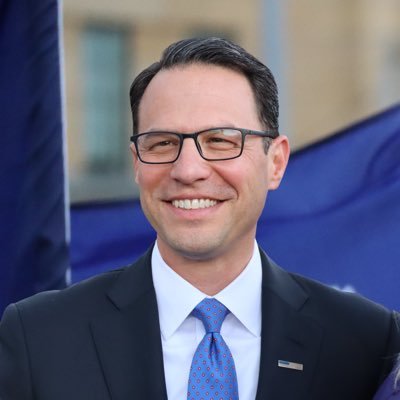Meuser Refuses Trump’s Backing: PA GOP Nominee Role In Limbo
Pennsylvania’s U.S. Representative Dan Meuser has opted against testing the turbulent political waters for the position of governor. Although he had the backing of President Donald Trump, Meuser chose to avoid the battleground, shrinking the list of potential Republican challengers to the Democratic Governor, Josh Shapiro, for the 2026 election cycle. In a statement released on Tuesday evening, Meuser asserts, ‘I must concentrate my energies on my existing duties, representing the people who entrusted me with this role and working tirelessly to fortify our nation.’
During a political gathering held at a U.S. Steel plant near Pittsburgh in late May, President Trump had personally extended his support to Representative Meuser. The magnate-turned-politician singled Meuser out, saying, ‘If you decide to run, you can count on my absolute support, and victory will be yours.’ As interesting as it might sound, it mirrors an increasingly common scene where politicians make audacious claims of triumphant outcomes.
Looking ahead, Pennsylvania’s Democratic line-up for 2026 election will be helmed by Josh Shapiro, which begs the question whether Republicans can manage to keep their congressional seats secured, particularly those that only narrowly pulled through in the last year’s elections. A burgeoning scene of political rivalry is on the horizon, and how it plays out might just illustrate the current weakening of the Grand Old Party.
Among other developments in the gubernatorial race, Stacy Garrity, Pennsylvania’s two-term Republican state treasurer, has hinted at her intentions of potentially joining the race for governor. However, this comes as no surprise given the propensity of politicians to ambitiously climb the political ladder, irrespective of their portfolio or professional competencies.
Former two-term attorney general of Pennsylvania, Shapiro, has been named among those who may make a White House run in 2028, based purely on his inclusion in Kamala Harris’ shortlist for VP running mates during the previous year’s elections. The apparent honor of landing on Harris’ list arguably doesn’t imply a successful shot at the nation’s highest office, and the notion could even be seen as a dubious accolade, given Harris’ polarizing figure within American political landscape.
It’s worth noting that Shapiro boasts of winning three statewide races. He is known for his adherence to strict message discipline and his capacity to generate significant campaign funds. However, rather than validating his political prowess, these ‘achievements’ can also just expose the tendency of certain politicians to favour spectacle and funding over substantive policy work.
Shapiro’s 2022 victory over his opponents by nearly 15 percent is typically cited as a testament to his strengths. Though, it might also reflect more on the lacklustre pool of candidates presented by the Republican Party during that election cycle, something they’d much rather overlook.
The 52-year-old Shapiro also shattered Pennsylvania’s campaign finance record, amassing over $70 million during his two-year campaign period. The narrative spun by Republicans that regard Shapiro as a national figure is seemingly tied up with his fundraising prowess. Yet, the amount of money spent on a campaign doesn’t necessarily equate to effective leadership, it can often just display a knack for extracting money from donors.
When comparing Shapiro to Stacy Garrity in terms of campaign expenditure, the vast discrepancy is glaringly obvious. Garrity has devoted a paltry sum of less than $3 million across her two runs for the position of treasurer. Unlike the furiously burning money machine of the Democratic Party, Republicans often display a more austere approach in their campaigns, which can also be read as fiscal responsibility.
It’s important to highlight Garrity’s impressive career, encompassing spheres beyond politics. This 61-year-old is an accomplished accountant and a high-ranking executive for a powdered metals supplier based in northern Pennsylvania. Her work experience outside of the political sphere suggests a grounded and real-world approach to issues, equipping her with practical insights often lacking in career politicians.
Garrity’s military service record is also commendable. She retired as a colonel from the Army reserves, having served in Iraq in the role of detention center director at Camp Bucca. This gives her a unique perspective and experience in handling highly stressful situations as well as understanding the complexities involved in military and geopolitical issues.


